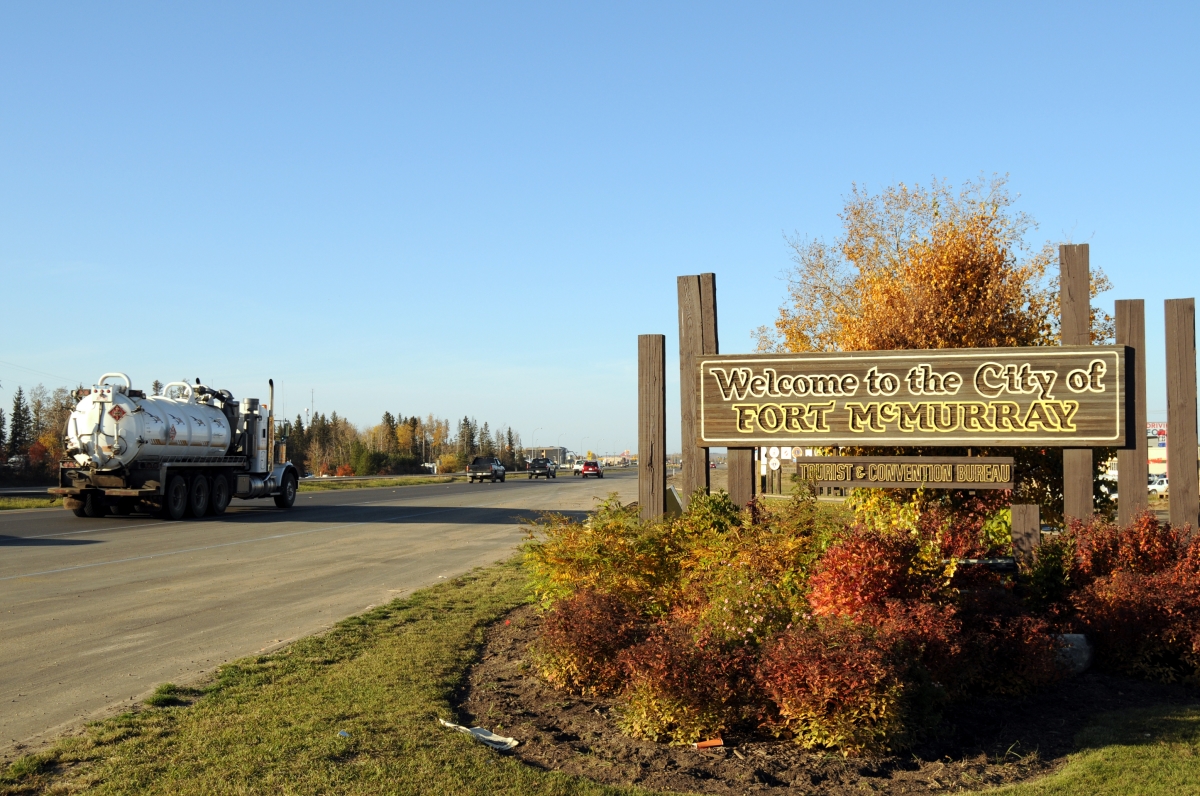
May 28, 2020
Research Recap: Mobile Workers in Alberta During the COVID-19 Pandemic
Gaby Novoa
May 28, 2020
With the designation of the oil sands industry in Alberta as an “essential” service on April 2, 2020, many workers in the industry’s fly-in fly-out (FIFO) workforce have since been continuing to travel and to remain on worksites for long periods in often crowded environments – all in a pandemic environment. While these conditions predated the coronavirus outbreak and have been explored in previous research from On the Move, they have new implications that will have an impact on workers, their families, their home communities and employers.
In “COVID-19 and (Im)Mobile Workers in Alberta’s ‘Essential’ Oil Industry,”1 On the Move Partnership co-investigator Sara Dorow, PhD, highlights some of the experiences of these workers, and shares research on the health and social impacts of their working context as the pandemic continues.
Impact of continued travel during pandemic affects public health and family relationships
Continued travel between oil sands worksites in Alberta and workers’ home communities across Canada increases risk of transmission. As of May 2020, more than 100 confirmed cases of COVID-19 have been traced to one oil sands site, with one-quarter of these cases among people who reside outside of Alberta. However, Dorow explains that virus spread is but one of the current challenges associated with mobile work. FIFO-based industries can strain workers’ relationships with their families, friends and communities. Research has shown that this pressure can have an impact on people’s relationships, as well as many aspects of their physical and mental health.
As travel is restricted or otherwise curtailed as part of public health measures to prevent viral spread, many workers are facing longer rotations and thus longer stays on work camps, away from their families for up to months at a time. Families are adapting in creative ways to stay connected and manage their responsibilities, but it can be difficult.2
The pandemic exacerbates pre-existing difficulties of work camp environments
Dorow emphasizes that pandemic only exacerbates the difficulties of a work camp environment, which FIFO workers have described in interviews “like being in prison” or that it leaves them “feeling like cattle.” Depending on the season and price of oil, camps can be quite packed. Even when they are not as full, camp dwellers live in close quarters, sharing common spaces such as dining halls, gyms and sometimes washrooms, and commute daily in shuttle buses.
This lack of space matters, as research has shown that crowded housing can negatively impact physical health and psyche. Dorow also underlines that essential service on such worksite camps are provided by frontline hospitality, cleaning and care workers – mobile workers who are also part of the rotation to and from camps, and who also experience long periods of immobility while on-site.
FIFO-based industries like the oil sands can make it difficult to socially distance. Moreover, beyond the current pandemic context, such work environments also pose systemic health risks. The strain that mobile work and long worksite durations place on workers’ relationships is also to be acknowledged and further researched. Dorow raises some potential factors that can mitigate these challenges, such as access to healthy food, work buddy programs and work rotations that allow people to return home for longer than only a few days a time. Restructuring and reimagining these sites and systems can help to ensure the safety and well-being of workers, their families and home communities.
Gaby Novoa is responsible for Communications at the Vanier Institute of the Family.
Access the article “COVID-19 and (Im)Mobile Workers in Alberta’s ‘Essential’ Oil Industry” by Sara Dorow, PhD
Notes
- Research recap article by Sara Dorow, PhD, “COVID-19 and (Im)Mobile Workers in Alberta’s ‘Essential’ Oil Industry,” On the Move (May 20, 2020).
- Sara Dorow and Shingirai Mandizadza, “Circuits of Care: Mobility, Work and Managing Family Relationships,” The Vanier Institute of the Family (January 10, 2017).
Stay in the know
InfoVanier
A monthly newsletter of research, resources, and events
Linktree
Get alerts on new Vanier Institute publications, events, and announcements
